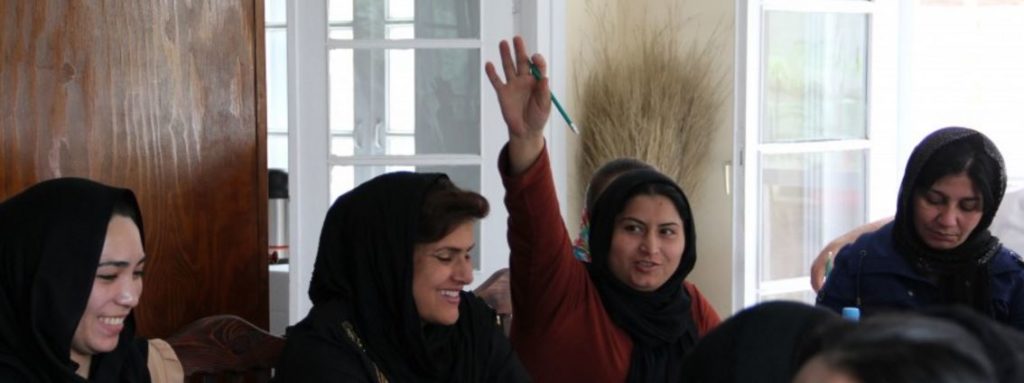On the 9th of April 2017, COSPE (Cooperazione per lo Sviluppo dei Paesi Emergenti), HAWCA (Humanitarian Assistance for the Women and Children of Afghanistan) and CSHRN (Civil Society and Human Rights Network) have jointly launched Women for Change.
On the 9th of April 2017, COSPE (Cooperazione per lo Sviluppo dei Paesi Emergenti), HAWCA (Humanitarian Assistance for the Women and Children of Afghanistan) and CSHRN (Civil Society and Human Rights Network) have jontly launched Women for Change, an international campaign for human rights in Afghanistan focusing on women as change makers, in the frame of AHRAM (Afghanistan Human Rights Action and Mobilisation), a project co-funded by European Union.
The campaign wants to draw the attention of the Afghan Government and the international institutions to the need of removing the obstacles limiting the access to education of girls and of preparing female leadership in the country.
The campaign supports positive measures to promote the role of women in politics, in social institutions and in the community at large. In Afghanistan, the environment for female human rights defenders is considerably difficult and dangerous. Over the past few years there has been a significant increase in threats, intimidation and attacks against those at the forefront of promoting and protecting women’s rights.
Women acting in public life are particularly subject to pressures and threats from traditional social circles, and they are not adequately protected in the exercise of public functions in freedom and autonomy. Supporting the political and civic leadership of women in the country is therefore an essential policy to stimulate effective and sustainable change in local society. Empowering women’s political and civil leadership means as well affecting structural factors of bad governance, and not merely dealing with its consequences.
Furthermore, Women for Change campaign believes that education is important to empower women and to prepare the ground for their participation in political and public life: no investment in education means less female protagonism in political life. That’s why Women for Change campaign asks to the Afghan Government to: 1) fully implement the laws on political participation and of the Elimination of Violence Against Women Law (EVAW Law, 2009), 2) re-establishing the 25% women quota for the seats at Provincial Councils, and apply similar mechanisms in District and Village elections; 3) implement the 2013 1325 UNSCR National Plan on Women, Peace and Security; 4) investigate corruption affecting public education, involving civil society in the monitoring process, and collaborating with investigative journalists; 5) promote programs for female adolescents to empower their intellectual and cultural skills, and challenge the culture of conservatism in society and at school, which undermines their right to access and practice civil and political life; and 6) promote opportunities to facilitate women’s economic initiative, being this often a pre-condition for an active presence of women in public life.
On the other hand, the International Community should make pressure on Afghan government to enhance women’s participation in public life, working in collaboration with human rights defenders; EU and EU member states should allocate resources to empower women as civil and political leaders, and to upgrade access to education of girls and young women; they should protect women under threat when they are exposed to public life, and support programs of job inclusion for women in strategic sectors.


